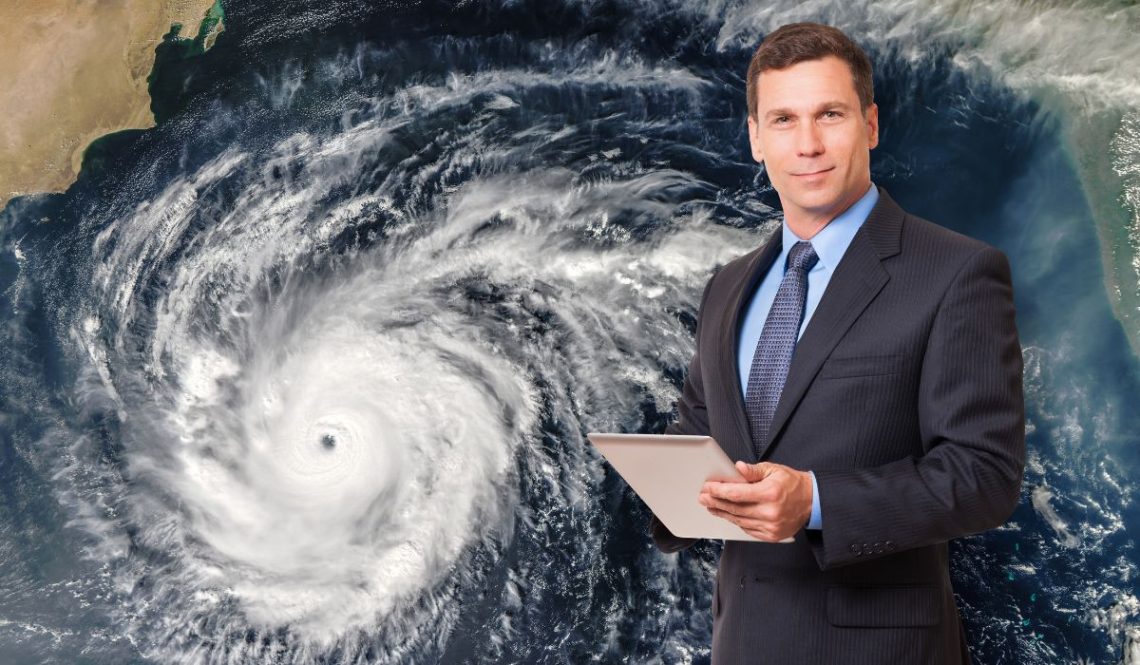
How To Become A Meteorologist | SkillsAndTech
Have you ever looked up at the sky and wondered what makes the clouds move? Or why the sun shines during the day and the stars come out at night? If you have, then you might be interested in a career in meteorology! Meteorologists are scientists who study the Earth’s atmosphere.
They use their knowledge of atmospheric science to predict the weather and climate. Meteorologists work in a variety of settings, including television, radio, newspapers, government agencies, and private companies.
If you’re interested in a career in meteorology, keep reading to learn more about what it takes to become a meteorologist.
Table of Contents
The educational requirements for becoming a meteorologist
Most meteorologists have a bachelor’s degree in atmospheric science or a related field, such as mathematics or physics. Some meteorologists have a master’s degree or doctorate in atmospheric science or a related field.
See Also: How To Become A Mortgage Loan Officer | SkillsAndTech
In order to become a meteorologist, you will need to complete a bachelor’s degree in atmospheric science or a related field. You can find atmospheric science programs at many colleges and universities. Some meteorologists have a master’s degree or doctorate in atmospheric science or a related field.
There are many different career paths you can take as a meteorologist. You can work in television, radio, newspapers, government, or private industry. You can also work as a consultant or educator.
Most meteorologists work full time. Some meteorologists work on a contract basis. Meteorologists who work in television or radio may work irregular hours, including weekends and holidays.
If you are interested in becoming a meteorologist, you should contact your local National Weather Service office or the American Meteorological Society for more information.
See Also: How To Become A Surgical Assistant | SkillsAndTech
The skills that are needed to be a successful meteorologist
There are many different skills that are needed in order to be a successful meteorologist. Some of these skills include:
1. The ability to interpret and understand complex data sets.
2. The ability to use sophisticated computer models to predict weather patterns.
3. The ability to communicate complex information to the public in a clear and concise manner.
4. The ability to work well under pressure, often in stressful situations.
5. The ability to make quick decisions based on limited information.
6. The ability to think critically and solve complex problems.
7. The ability to work well as part of a team.
8. The ability to stay calm and level-headed in challenging situations.
See Also: How To Become A Bookkeeper | SkillsAndTech
These are just some of the skills that are needed in order to be a successful meteorologist. If you have these skills, then you may have what it takes to pursue a career in this field.
The different types of meteorologists
There are many different types of meteorologists, each with their own unique skills and knowledge. Here are four of the most common types of meteorologists:
Broadcast Meteorologists
Broadcast meteorologists are the ones you see on TV giving the forecast. They typically have a bachelor’s degree in meteorology, and many also have a master’s degree or higher. Broadcast meteorologists must be able to communicate clearly and concisely, as they often have to deliver the forecast in a limited amount of time.
See Also: How To Become A Health Coach | SkillsAndTech
Operational Meteorologists
Operational meteorologists are the ones who make the forecasts that you see on the news or on your phone app. They use computer models to predict the weather, and they constantly monitor the latest data to make sure their forecast is accurate. Operational meteorologists typically have a bachelor’s degree in meteorology, but some may have a higher degree.
Atmospheric Scientists
Atmospheric scientists study the atmosphere and how it affects the Earth’s weather and climate. They use their knowledge to improve computer models and to make long-term predictions about the Earth’s climate. Many atmospheric scientists have a bachelor’s degree in meteorology, but some may have a higher degree, such as a master’s degree or Ph.D.
Environmental Meteorologists
See Also: How To Become An Amazon Seller | SkillsAndTech
Environmental meteorologists use their knowledge of the atmosphere to help protect the environment. They may work for the government, advising policymakers on issues like air quality and climate change.
They may also work for environmental organizations, helping to raise awareness about issues like air pollution. Many environmental meteorologists have a bachelor’s degree in meteorology, but some may have a higher degree, such as a master’s degree or Ph.D.
The job outlook for meteorologists
The job outlook for meteorologists is very good. In fact, the demand for qualified meteorologists is expected to exceed supply in the coming years. This is due to the increasing need for accurate weather information in both the public and private sector.
See Also: How To Become A Warrant Officer | SkillsAndTech
As the effects of climate change become more apparent, the need for accurate weather information will only increase. Meteorologists play a vital role in providing this information, and those with the necessary skills and experience will be in high demand.
There are many different career paths that meteorologists can take. Some work in research, while others work in broadcast media or as consultants. There are also many opportunities for meteorologists to work in the private sector, where they can use their skills to help businesses make decisions about everything from production schedules to transportation routes.
The job outlook for meteorologists is very good. Those with the necessary skills and experience will be in high demand in the coming years.
The salary range for meteorologists
The salary range for meteorologists can vary depending on a number of factors, including experience, education, and location. In general, however, meteorologists can expect to earn a median salary of around $87,780 per year.
Meteorologists who are just starting out in their careers can expect to earn a salary on the lower end of the spectrum. Those with more experience, however, can earn salaries closer to the upper end of the range. Those who have advanced degrees in meteorology or related fields may also earn higher salaries.
Location also plays a role in the salary of a meteorologist. Meteorologists who work in large cities or in states with a high cost of living can expect to earn higher salaries than those who work in smaller towns or in states with a lower cost of living.
Overall, the salary range for meteorologists is fairly wide, but those with more experience and education can expect to earn the highest salaries.
The benefits of becoming a meteorologist
A meteorologist is a person who studies the science of meteorology. Meteorologists are trained to observe and predict the weather. They use their knowledge of the atmosphere to help people make decisions about their daily lives, such as when to plant crops or go fishing.
The benefits of becoming a meteorologist are many. Meteorologists have a deep understanding of the atmospheric processes that control the weather. They use this knowledge to help people make decisions about their daily lives.
Meteorologists also use their skills to help businesses and industries make decisions about their operations. Meteorologists help keep people safe by issuing warnings about severe weather conditions.
They also help protect property by providing information about how to prepare for and respond to weather emergencies. Meteorologists also play an important role in climate research. They use their knowledge of the atmosphere to help scientists understand how the Earth’s climate is changing.
Becoming a meteorologist can be a challenge. Meteorologists need to have a strong background in the physical sciences. They must be able to understand and use complex mathematical models. Meteorologists also need to be able to use sophisticated computer equipment and software.
But the rewards of becoming a meteorologist are great. Meteorologists have the satisfaction of knowing that they are helping people and businesses make important decisions every day. They also have the opportunity to work in a variety of settings, such as television, radio, and online media. And they can work in many different parts of the world.
The drawbacks of being a meteorologist
The drawbacks of being a meteorologist can include long hours, shift work, and working in difficult or dangerous conditions. Some meteorologists may also find it difficult to find full-time employment.
Conclusion
In conclusion, meteorology is an excellent career choice for those interested in the science of weather and climate. It is a challenging field that requires a great deal of knowledge and skill, but the rewards are well worth the effort.
With a good understanding of the atmospheric processes that control our weather, you can make a difference in the lives of others by providing them with the information they need to make informed decisions about their safety and well-being.
FAQ (Frequently Asked Question)
Is meteorology a good career?
Meteorology is an excellent career choice for those who are interested in the weather and climate. It is a challenging and exciting field that offers many opportunities for growth and advancement.
The top salaries in meteorology are very competitive, and the field is expected to grow significantly in the coming years.
Meteorologists have a lot of responsibility and must be able to make quick, accurate decisions. They also must be able to communicate complex information to the public.
What is the top salary for a meteorologist?
The top salary for a meteorologist can vary depending on experience, education, and location. In the United States, the average salary for a meteorologist is $92,460 per year. However, those working in television or radio may earn significantly more. For example, the top 10% of earners in this field make an average of $145,180 per year.
Is meteorology a lot of math?
Yes, meteorology is a lot of math. In fact, most of the time spent studying meteorology is spent doing math. Meteorologists use math to predict the weather. They use equations to figure out how the atmosphere works. And they use computers to help them do all of this.
What are the risks of being a meteorologist?
There are a few risks that come with being a meteorologist. The first is that, because weather can be unpredictable, you may have to work long hours on short notice.
This can be tough on your personal life and can make it difficult to maintain a work-life balance. Additionally, because weather can be dangerous, you may be called upon to work in hazardous conditions.
This could mean working in severe weather conditions or in areas that have been affected by natural disasters. Finally, because of the nature of the job, you may have to travel frequently, which can be expensive and time-consuming.
How many years does it take to become a meteorologist?
It typically takes four years to complete an undergraduate degree in meteorology. However, some students may be able to complete their degree in three years if they attend a school that offers advanced placement or credit for prior learning.
After completing an undergraduate degree, students can pursue a master’s degree in meteorology, which typically takes two years to complete. Some students may also choose to pursue a doctoral degree in meteorology, which can take an additional four years to complete.





